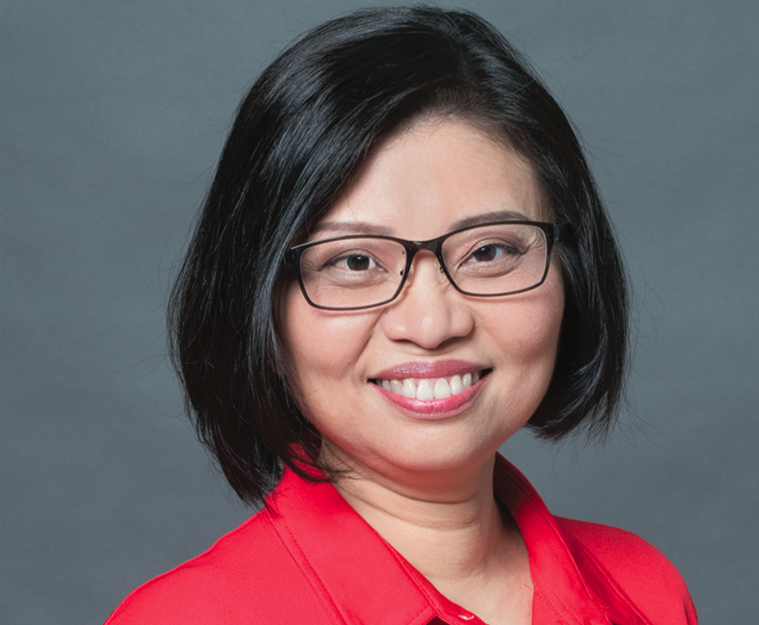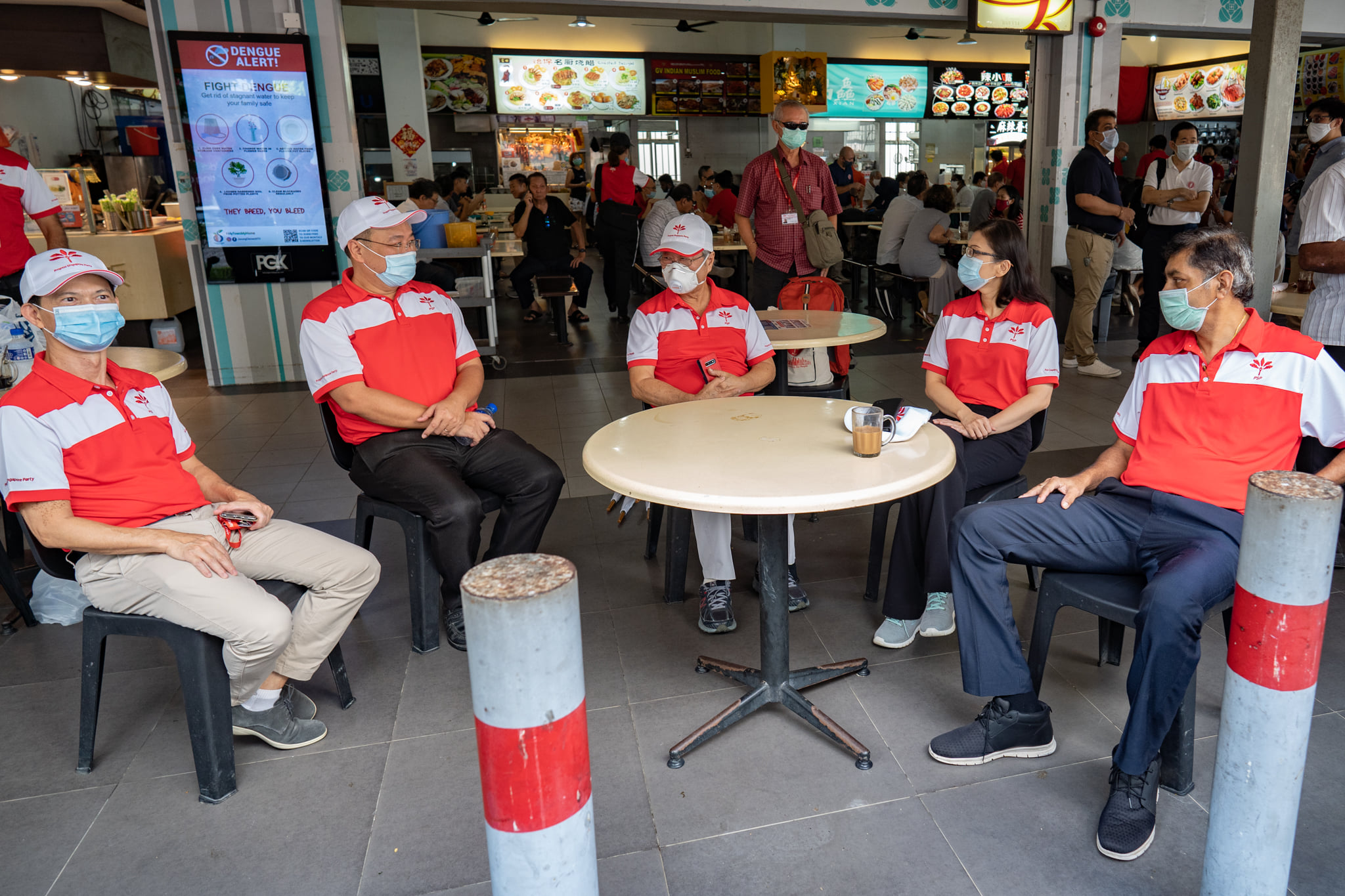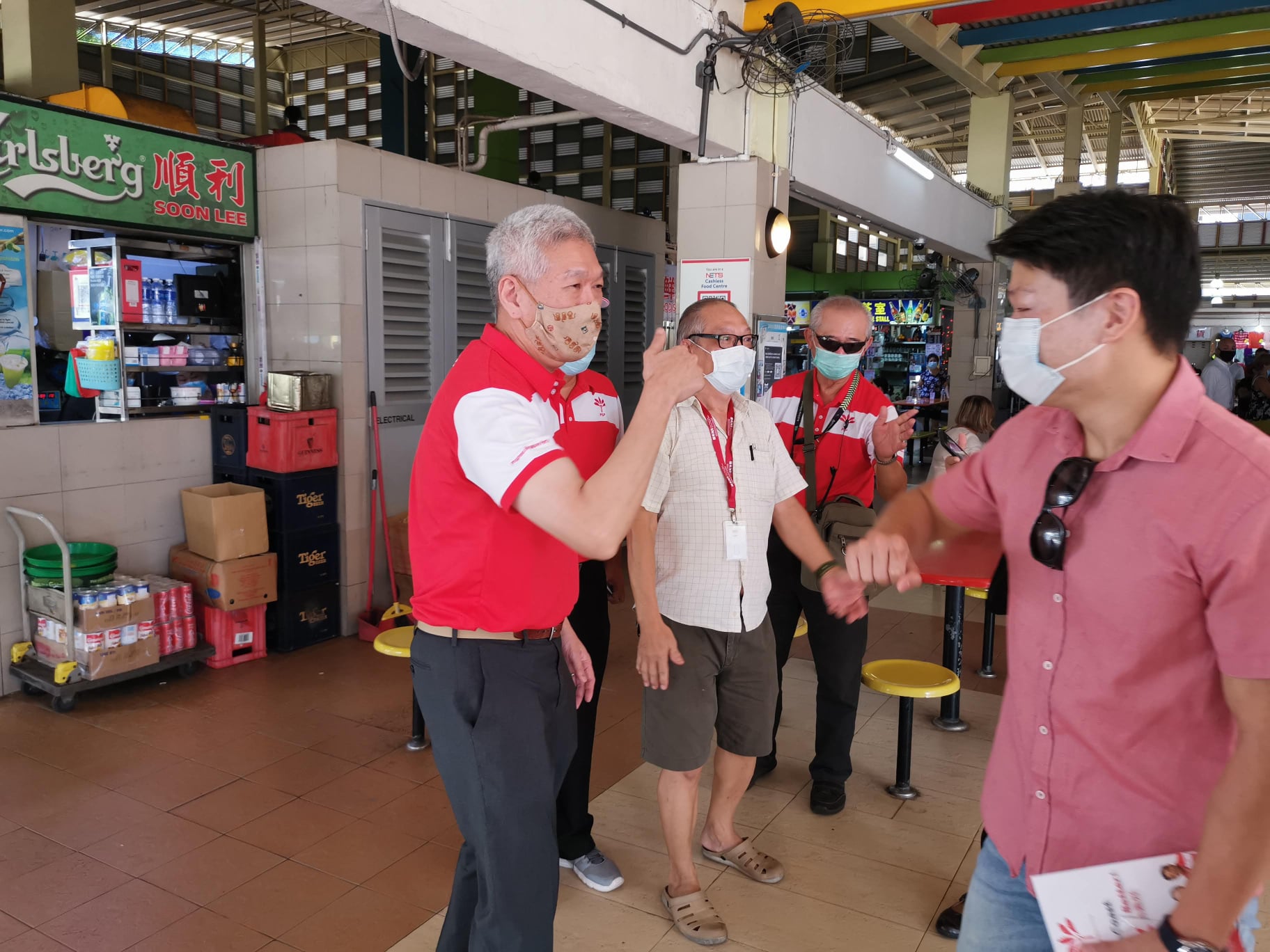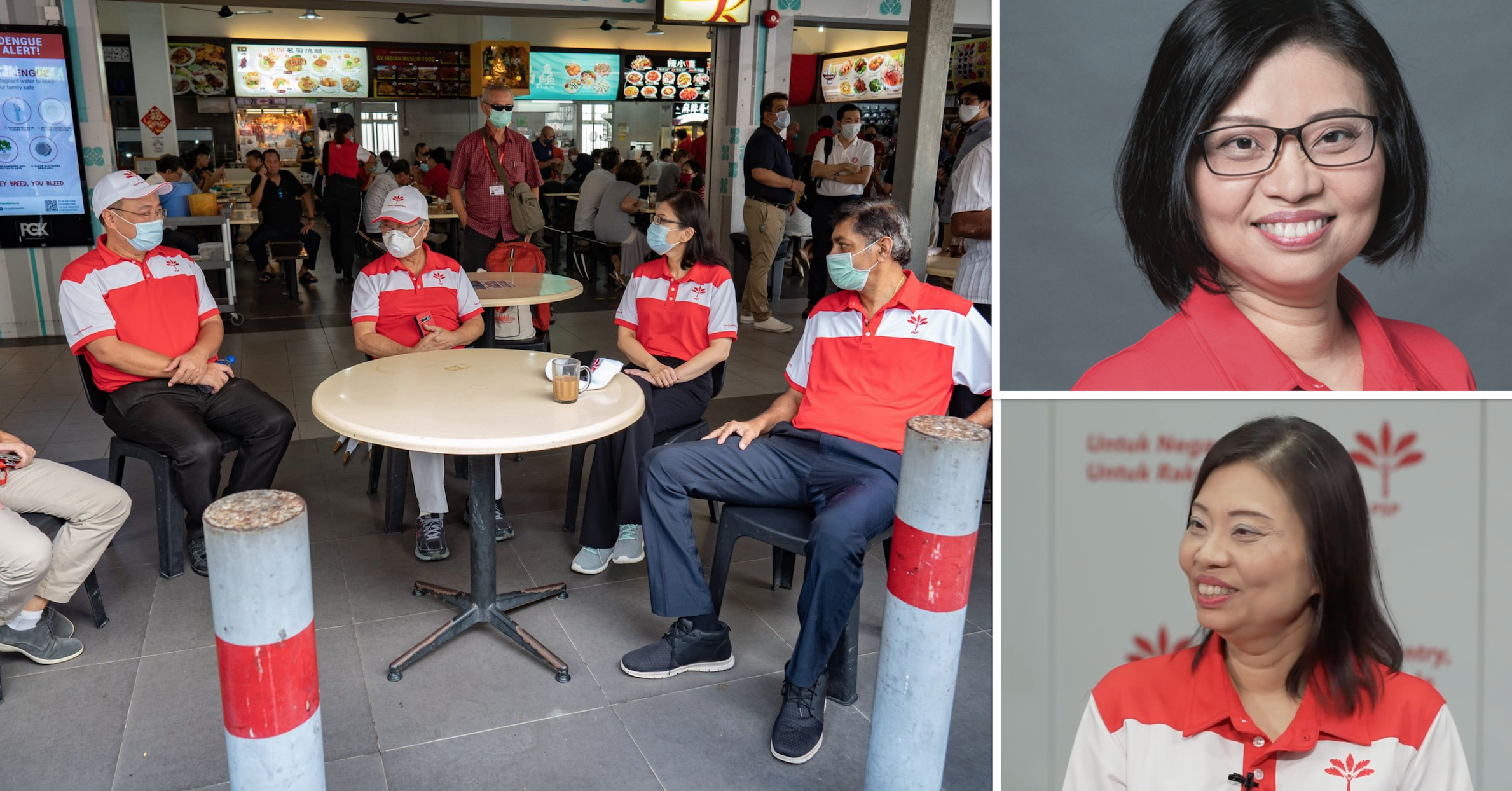The Progress Singapore Party (PSP) is the third political party that Hazel Poa has joined.
Poa is no ordinary member in the party though — she currently holds the position of Vice Chairman in PSP’s central executive committee.
 Photo via PSP
Photo via PSP
For the upcoming election (GE2020), Poa is contesting West Coast GRC as part of the PSP's 'A' team, with party leader Tan Cheng Bock, as well as Assistant Secretary General Leong Mun Wai, Jeffrey Khoo, and Loganathan Nadarajah.
 Photo via PSP West Coast's Facebook page
Photo via PSP West Coast's Facebook page
Three parties in 10 years
In the past decade, Poa has been in three opposition parties — Reform Party (RP), National Solidarity Party (NSP), and now PSP.
Compared to the other two, PSP is a relatively new party, formed in 2019. When asked about the key differences between each party, the 50-year-old declined to comment.
Poa, however, firmly and emphatically tells us that PSP is the best fit for her.
"I found the values that PSP stands for [are] very much in sync with what I want to do, I have no reservations there, I can really wholeheartedly support", she said.
"Values aligned with mine"
Poa is echoing a sentiment that she had expressed at a PSP press conference on June 18, where the party introduced her as one of its first six candidates for GE2020.
A member of the media had posed a similar question, asking Poa to single out the biggest difference as a PSP candidate and member, compared to the other parties.
Poa responded in Mandarin at the reporter's request, talking specifically about her mindset.
"The path that we [opposition parties] have chosen is not an easy one. It's easy to give up. But I'm very heartened this time, as I have joined a party whose values are aligned with mine. So the biggest difference for me this time is my determination. This time, I definitely do not want to give up. And I definitely will not let any person, or matter, deter me from the path I have chosen."
In fact, Poa felt so much conviction in her remarks that she teared, choking up slightly towards the end of her response.
She laughs in good-natured embarrassment when we brought the incident up.
"More prepared now"
Along with this unbending resolve is Poa's belief that she has grown from the past decade.
She tells us that she has "changed quite a bit" after her experience in two other political parties, and confesses to her naivety as a political greenhorn.
"I think when I first entered politics I was a bit, you know, naive about what it takes to to stay. But after after having been through two political parties I think I became a bit more realistic in my expectations. And so this time, I think I'm more prepared."
If you weren't following the 2015 elections, Poa resigned as the secretary-general of NSP after the party decided to field a candidate in MacPherson SMC, a decision that would have resulted in a three-cornered fight with the PAP and Workers' Party (WP).
According to The Straits Times, Poa wrote in a statement that it was a decision she "strongly disagreed with", and hence one that she could not implement.
She added, "As the direction that the party has decided to pursue deviates greatly from my own, I see no choice other than to resign from the NSP".
As a result, she did not contest in the 2015 election.
Even earlier on in 2011, Poa was among the slew of members who left the RP about three months before the general election.
Poa was quoted citing "differences of opinion" with the party's leader, Kenneth Jeyaretnam, as the cause of the split.
Political awakening in the 1990s
As you may have gathered, it's been quite a journey for Poa.
But her background may also be of intrigue to some. Poa was a government scholar who attended Cambridge University, where she graduated with a first class honours degree in Mathematics.
She then spent the next four years in civil service — first in the Prime Minister's Office (PMO), then the Ministry of Finance (MOF).
After leaving the civil service, Poa started her own business in the education sector, where she now runs a private school.
So what kindled the spark that led her to join the opposition?
Poa is very clear on the main deciding factor. Before we had even asked the question, she answers it for us.
"[...] What drove me into politics in the first place was when I felt that the ruling party is putting party interests ahead of Singapore's interest. For example, back then, that was way back in the 1990s at least, when they started linking HDB upgrading to votes.
There was one stage when that was the case, you know. They were kind of saying like, if you vote for opposition, if your town is [under an] opposition MP, then you will see your estate go down in value, because there'll be no updating and things like that.
So that really shocked me because I felt that it was wrong."
Poa pointed out that the taxpayers' money were used to the advantage of the ruling party then, which for her, signalled that the PAP was putting party interests above national interest.
In 2011, Prime Minister Lee Hsien Loong explained the government's stance on opposition wards being treated differently from PAP wards, saying:
"There has to be a distinction. Because the PAP wards supported the government and the policies which delivered these good things... Between the people who voted and supported the programme and the government, and the people who didn't, I think if we went and put yours before the PAP constituencies, it would be an injustice."
"And that's when I really started getting uncomfortable about a one-party system", she added.
Family links in politics
But the "switch" from being a government scholar to a member of the opposition was less of a leap for Poa than some might have imagined.
In fact, Poa says that for her, it "probably [was] easier than the average person", largely due to her family background.
For one, husband Tony Tan (a different Tony Tan than our former president) had joined the opposition before she did.
Poa's father, on the other hand, started much younger than she did.
According to Poa, her father had participated in student demonstrations, and was even jailed for a "short while" due to that.
In this family environment, Poa "didn't meet with a lot of consternation" when she joined the opposition.
"There is a little bit of family history", she laughs.
GE2020 chances in West Coast GRC
Poa is cautiously hopeful about her chances of winning in West Coast GRC.
The PSP candidate reveals that the team has been interacting with residents since the commencement of Phase 2, and Poa has personally found the experience "encouraging".
"Because I last contested in GE2011. I actually feel that it's rather comparable or better — [compared to] how I felt then about the reaction on the ground."
In the week leading up to Nomination Day (June 30), PSP created quite the buzz when Lee Hsien Yang joined Tan [Cheng Bock] for a breakfast meeting at Tiong Bahru market.
It was later revealed that Lee, who is Prime Minister Lee Hsien Loong's brother, had joined the PSP a few months prior.
While it's been confirmed that he is not contesting, Poa describes Lee's continued involvement as a "big shot in the arm", and acknowledges that just by joining, he has provided the party with an "added boost and visibility" that will help in the election.
 Photo via PSP West Coast's Facebook page
Photo via PSP West Coast's Facebook page
As for Poa herself, she reveals that she's only had a couple of opportunities to interact with Lee, but found him "very approachable".
"I'm very hopeful of future developments, shall I say", Poa bursts out laughing once more.
When we ask about her outlook for Singapore, Poa makes a joke about crystal gazing, but responds nonetheless.
Despite the obstacle course on the way to Parliament, her outlook for Singapore comes across as positive.
"I feel that for such crisis [referring to the Covid-19 pandemic], there will be a period of hardship. But just like, you know, in the SARS experience, we have learnt that actually, we can bounce back."
Top image via PSP, PSP West Coast's Facebook page
If you like what you read, follow us on Facebook, Instagram, Twitter and Telegram to get the latest updates.

